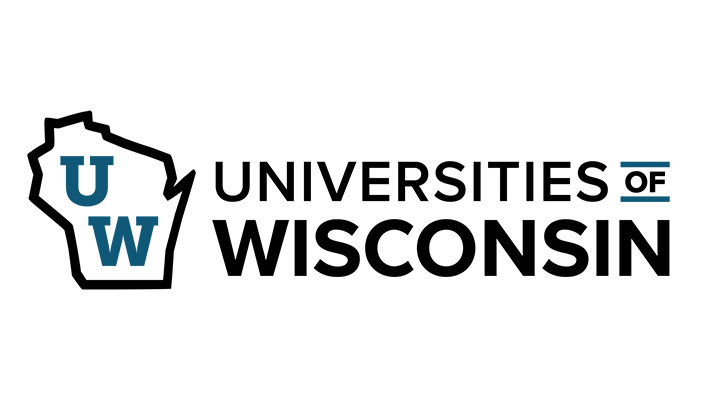Universities of Wisconsin 2024-2025 Wisconsin Teaching Fellows & Scholars announced
 The Universities of Wisconsin have announced the selection of the 2024–2025 Wisconsin Teaching Fellows & Scholars.
The Universities of Wisconsin have announced the selection of the 2024–2025 Wisconsin Teaching Fellows & Scholars.
This year’s program participants come from the Universities of Wisconsin’s 11 comprehensive universities and UW-Milwaukee. Wisconsin Teaching Fellows and Scholars (WTFS) must demonstrate excellent teaching skills and have a curiosity about student learning to be nominated by Provosts. The yearlong program begins in late May and will culminate with a research presentation at the annual Spring Conference on Teaching and Learning in April 2025.
WTFS provides UW faculty and teaching academic staff a unique opportunity to collaborate with other exceptional teachers from across the Universities of Wisconsin and from various disciplines. In addition to discussing effective evidence-based teaching and learning approaches, participants are guided through systematic research focused on improving student learning through a Scholarship of Teaching and Learning (SoTL) project, the 25th year of using this format.
Wisconsin Teaching Fellows & Scholars is one of three signature programs offered by the Universities of Wisconsin’s Office of Professional and Instructional Development (OPID). OPID supports the Universities of Wisconsin’s’ 13 Centers for Teaching and Learning in fostering a culture of teaching and learning excellence in Wisconsin. Together they offer professional development programs that ensure student learning in face-to-face, online, and blended learning environments. Fay Akindes is OPID Director.
The Wisconsin Teaching Fellows & Scholars program is directed by two faculty leaders, Valerie Barske, a history professor at UW-Stevens Point, and Heather Pelzel, a biological sciences professor at UW-Whitewater.
The 2024–2025 Wisconsin Teaching Fellows & Scholars are:
- Rae Langes, UW-Eau Claire, Race, Ethnicity, Gender and Sexuality Studies
- Katrina Rothrock, UW-Eau Claire, Mathematics Education
- Heather Kaminski, UW-Green Bay, Cofrin School of Business
- Taskia Ahammad Khan, UW-Green Bay, Electrical Engineering
- Rachel Funk-Johnson, UW-La Crosse, Organizational Behavior and Entrepreneurship
- Xinhui Li, UW-La Crosse, Microbiology
- Astrid Ochoa Campo, UW-La Crosse, Spanish and World Languages
- Mair Culbreth, UW-Milwaukee, Dance
- Joan Shapiro Beigh, UW-Milwaukee, Organizations and Strategic Management
- Samantha Larson, UW Oshkosh, Public Administration
- Jordan Snyder, UW-Parkside, Psychology
- Amelia Ray, UW-Parkside, Chemistry
- Lynnette Dornak, UW-Platteville, Physical Geography
- Lucie Kadjo, UW-Platteville, Agribusiness
- Abigail Jackson, UW-River Falls, Cognitive Psychology
- Carlos Rojas, UW-River Falls, Spanish
- Cera Babb, UW-River Falls, Music-Choral
- Cary Elza, UW-Stevens Point, Media Studies
- Laura Anderson McIntyre, UW-Stevens Point, Forestry
- David Barry, UW-Stevens Point, Sociology
- Xiaojing “Kate” Liu, UW-Stout, Packaging
- Lauren Johnsen, UW-Stout, Communication Studies
- Priyanka Mehta, UW-Superior, Psychology
- Kara Woodley, UW-Superior, Special Education
- Cody Marie Busch, UW-Whitewater, Speech Language Pathology
- Rocio Duchesne-Onoro, UW-Whitewater, Environmental Science
The Universities of Wisconsin serve more than 162,500 students. Awarding nearly 37,000 degrees annually, these 13 public universities are Wisconsin’s talent pipeline, putting graduates in position to increase their earning power, contribute to their communities, and make Wisconsin a better place to live. Nearly 90 percent of in-state Universities of Wisconsin graduates stay in the state five years after earning a degree. The universities provide a 23:1 return on state investment. The Universities of Wisconsin also contribute to the richness of Wisconsin’s culture and economy with groundbreaking research, new companies and patents, and boundless creative intellectual energy. Learn more at wisconsin.edu.
MEDIA CONTACT:
Mark Pitsch
Universities of Wisconsin
608-265-3419, mark.pitsch@wisconsin.edu
universityrelations@wisconsin.edu